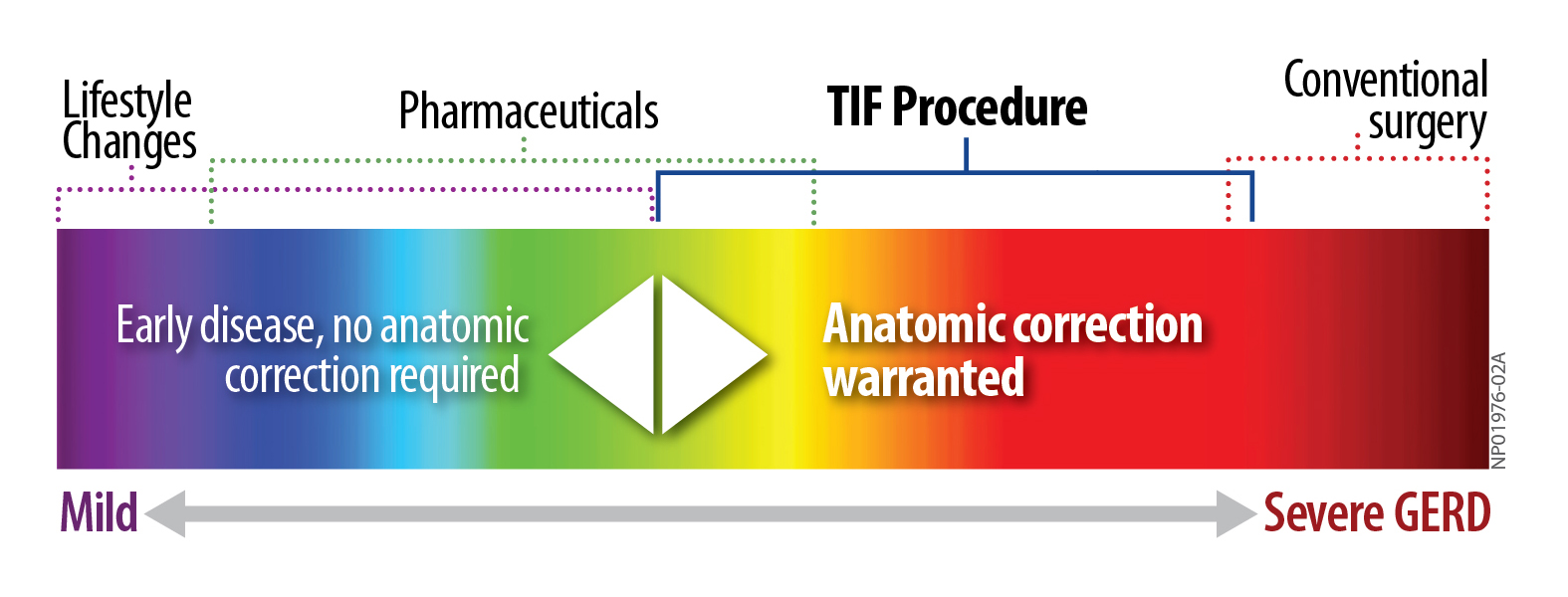Treating GERD (Gastroesophageal Reflux Disease)
GERD — gastroesophageal reflux disease — is a chronic condition. In general, GERD patients need to monitor their symptoms throughout the course of their lives once the condition has been diagnosed. The severity of GERD and the associated symptoms varies from person to person. For this reason, different treatment options for GERD may be appropriate. The severity of GERD can also vary from day to day or over time. For some individuals, treatment may be needed on a regular basis. Treatment needs can increase over time, especially if symptoms gradually worsen.
Goals of GERD Treatment
The most important goals of any GERD treatment regimen are:
- symptom control
- prevention of GERD-related complications
- healing of esophagitis
Progress toward these goals will help improve GERD patients’ day to day lives.
Available Treatment Options for GERD
Depending on the severity of symptoms, treatment options for GERD may involve:
Diet and lifestyle changes
Over the counter and prescribed medicines
Conventional antireflux surgery
Each of these types of treatment, as well as the indications, risks, and potential benefits, is discussed separately.
It is important to remember that GERD is a chronic condition that can affect each person differently. Its treatment involves a step-wise approach with guidance from a medical professional based on the severity of symptoms.
Search for a TIF-trained physician to schedule a full GERD evaluation.
Having reflux from time to time is normal; having it interrupt your life is not. If you suffer symptoms of reflux twice or more per week, you may have GERD. Take the GERD-HRQL survey if you suspect a problem and bring the results to your doctor for a GERD evaluation.


